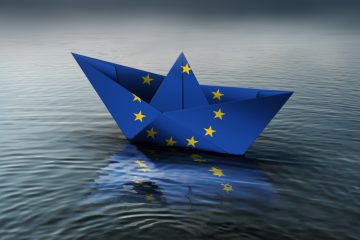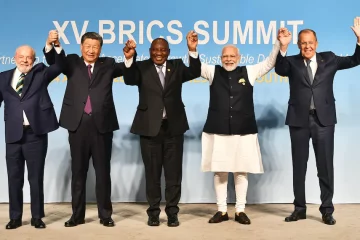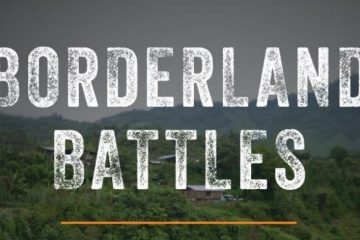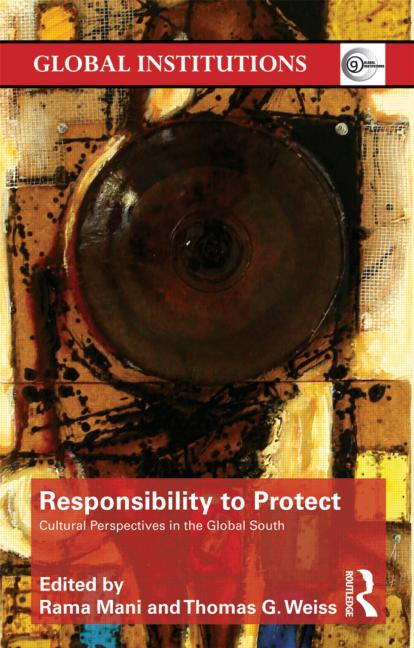
Review of Defekte Visionen. Eine Intervention zur Zukunft der Europäischen Union (Broken Visions. An Intervention on the Future of the European Union) by Alexander Thiele
What does the future of the European Union (EU) look like? Walking along the Rue de la Loi in the European Quarter in Brussels, the white and blue mural stating “The Future is Europe” by graffiti artist NovaDead sends a clear message. The bird in the right-hand corner stands for freedom and peace (referring to the values in Art. 2 of the Treaty on EU), the blue and yellow colours refer to the European flag, and the leaves recall the “green jungle” (a small forest of philodendrons) at the European Parliament in Strasbourg, which could also reflect the complex governance structure of the EU. But beyond this artistic and symbolic vision, what might the future of the EU look like …

From BRICS to BRICS+: Implications for the Group, Multilateralism, and the Global South
Introduction After World War II, the multilateral system was designed to promote international peace, drive economic growth, and ensure global cooperation. Institutions such as the United Nations, International Monetary Fund, and World Trade Organisation established alliances, treaties, and agreements with the aim of achieving shared prosperity. In recent years, however, cracks are beginning to appear within this system. The world has witnessed a sharp increase in geopolitical crises like the Russia – Ukraine war, withdrawals from treaties, trade protectionism and back-sliding democracies. The multilateral system has also failed to deliver comprehensive solutions to global issues such as COVID-19 and climate change. As the inequalities within the multilateral system become increasingly apparent, calls for change are starting to reverberate across the …

Their Algorithmic Constitutions? On The Emergence and Functioning of Platform Governance
While the idea of platform governance is not new, the complex nature of its functioning and the reasons for its emergence and entrenchment still lack holistic conceptualisation. While it is impossible to develop such a perspective in a single blog post, the considerations below are intended as a sensitising tool and a call to think about platform governance as simultaneously premised upon societal developments from which it has emerged and a pervasive force shaping contemporary societies. In order to better understand the how and why of platform governance, at least two arguments are possible, although they are by no means mutually exclusive: a historico-political and an economic one. On the historico-political side – and for perhaps the most eloquent account, …

Borderland Battles: Violence, Crime and Governance at the Edges of Colombia’s War
Anette Idler summarizes some of the findings from her new book Borderland Battles, which reveals how violent non-state groups compete for territorial control, co-operate in illicit cross-border activities and replace the state in exerting governance functions in borderlands. Borderlands are like a magnifying glass on some of the most entrenched security challenges of the world. In unstable regions, border areas attract violent non-state groups ranging from rebels and paramilitaries to criminal organisations who exploit their neglect by central governments. These groups compete for territorial control, cooperate in illicit cross-border activities, and substitute for the governance functions usually associated with the state. Studying the Colombian borderlands where armed conflict and organised crime converge demonstrates that the gap between state-centric views on …

Tehran 2012: From the Axis (of evil) to the Non-Aligned Movement
After long years of silence and quiescence, the Non-Aligned Movement gained momentum in the debate about global governance and the management of alternative strategies of engagement with the world of international affairs. The setting was an unusual one per se, suggesting that the 16th gathering of the NAM was likely to be of a different nature. Indeed, Tehran, during the heated summer of 2012, seemed to be one of the less aligned capitals of the world, for a number of issues, widely debated in political science circles as well as among foreign policy decision-makers. Crippling sanctions, shadow negotiations and an on-going regional conflict in the Middle East, with several branches developing in Syria, Lebanon, Bahrain and perhaps Yemen, have put …

Religion, Spirituality and Global Governance: an International Interdisciplinary Conference
On Friday, May 4 and Saturday, May 5, the University of Oxford Centre for International Studies (CIS) hosted an international interdisciplinary conference, jointly convened by the Academic Council on the United Nations System (ACUNS), and the Centre for Sustainable Development & International Peace at the University of Denver. Featuring a variety of scholars and leaders in the field of peace and conflict studies, international development and theology, the conference aimed to “deepen the understanding of the paradoxical role of religion and spirituality in the contemporary social and political context, and its potential to shape global governance.” The first panel, entitled “Religion, Civilization and Globalization”, began with a presentation by Katharine Marshall, Senior Fellow at the Berkley Centre for Religion, Peace and World …

On ‘Responsibility to Protect: Cultural Perspectives in the Global South’
At the 2005 UN World Summit, more than 170 Heads of State and Government accepted three interlinked responsibilities, which together constitute the principle of ‘responsibility to protect’ (R2P). First, States accepted the responsibility to protect their own populations from genocide, war crimes, ethnic cleansing and crimes against humanity. Second, States promised to assist each other in fulfilling their domestic protection responsibilities. And third, the international community took on a collective responsibility to react, in a timely and decisive manner, if particular States are manifestly failing to protect their populations from the abovementioned mass atrocity crimes. Despite a quite remarkable normative development (see for example the frequent invocation of R2P in relation to the recent Libya crisis), this R2P principle is …
China’s Politics of Tobacco Control
Recognizing that tobacco consumption has become a leading cause for premature death worldwide, the international community, under the auspice of WHO, successfully developed the Framework Convention on Tobacco Control (FCTC) with unanimous adoption by the 192 member states in May 2003. It is the first time that the Organization has used its constitutional right to develop an internationally legal instrument in global health governance. Therefore, it is a seminal event in global health. It also represents an unprecedented collective action to curb the global tobacco epidemic. The convention came into force in February 2005. With 174 party members covering 87% of the World’s population, the FCTC has been among the most widely and rapidly embraced international conventions devoted to health …









